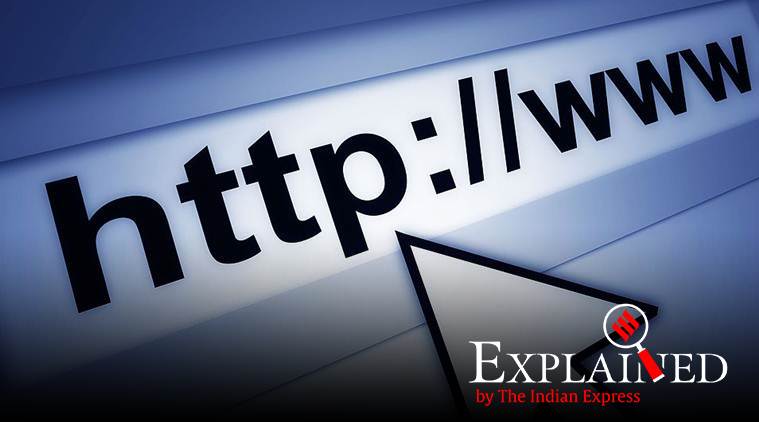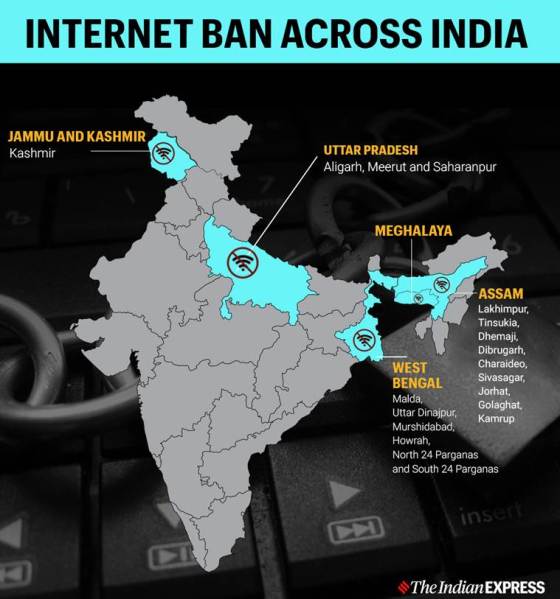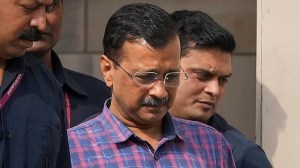- India
- International
Explained: The problem with shutting down the Internet
Why is cutting online access to control restive populations — an increasing trend around the world — a problem?
 Worldwide, Internet shutdowns are typically used when there is civil unrest, in order to block the flow of information about government actions or to end communication among activists and prevent the spread of rumours and fake news.
Worldwide, Internet shutdowns are typically used when there is civil unrest, in order to block the flow of information about government actions or to end communication among activists and prevent the spread of rumours and fake news.
After large parts of Assam, the Internet has been shut down in the Murshidabad, Malda, Howrah, North 24-Parganas, and South 24-Parganas districts of West Bengal on Sunday (December 15). There have been several other local Internet shutdowns as the protests against the citizenship amendment Act, passed by Parliament earlier this week, have raged across the country.
Jammu and Kashmir, of course, has gone without normal Internet services from August 5, the day the government moved to strip the erstwhile state of its special status under the Constitution.
 Internet ban across India on Monday, December 16, 2019.
Internet ban across India on Monday, December 16, 2019.
Worldwide, Internet shutdowns are typically used when there is civil unrest, in order to block the flow of information about government actions or to end communication among activists and prevent the spread of rumours and fake news. India, with its cheap data and ubiquitous WhatsApp forwards, is especially vulnerable to the last-mentioned phenomenon.
But why is cutting online access to control restive populations — an increasing trend around the world — a problem?
The Internet is pretty much a basic human right, even if not legally defined as such, for most parts of the world — without access to the virtual world, a very large number of vital human activities simply stop.

While authoritarian regimes such as China and Iran routinely cut their people off from the worldwide web, according to Internet freedom advocacy Access Now, which has been documenting Internet shutdowns since 2011, India too sees frequent shutdowns of Internet access.
In fact, of the 196 shutdowns in 25 countries documented by Access Now in 2018, as many as 134 were in India, followed by Pakistan (12). Asia and Africa saw the most shutdowns in 2018. The total number of Internet shutdowns increased from 75 in 2016 to 106 in 2017, and to 196 in 2018, according to Access Now.
A September 2019 report in The New York Times summed up how Internet shutdowns ordered by governments impact people: “(They) do more than stunt the democratic process. They can batter whole economies and individual businesses, as well as drastically disrupt the daily life of ordinary citizens, turning the search for mobile service into a game of cat and mouse with the police and driving people across borders just to send emails for work.”
But there is a very significant economic cost to pay as well.
In countries that have “medium” Internet penetration — 49% to 79% of the population — a shutdown could dent daily economic activity by $6.6 million per 10 million people, according to an analysis by Deloitte, quoted in The New York Times article.
Between July 2015 to June 2016, Internet shutdowns caused global losses of more than $2.4 billion, according to an analysis by The Brookings Institution quoted in the same article.
It is in recognition of the Internet as a human right that the United Nations in 2016 passed a non-binding resolution condemning countries that disrupt Internet access to its citizens.
On a resolution on “The promotion, protection and enjoyment of human rights on the Internet”, the UN Human Rights Council, guided by the Charter of the UN, said it was “deeply concerned by all human rights violations and abuses committed against persons for exercising their human rights and fundamental freedoms on the Internet, and by the impunity for these violations and abuses”, and “also by measures aiming to or that intentionally prevent or disrupt access to or dissemination of information online, in violation of international human rights law”.
Also Explained | What is the UN body that has criticised India for new citizenship Act?
More Explained
EXPRESS OPINION
Apr 23: Latest News
- 01
- 02
- 03
- 04
- 05








































